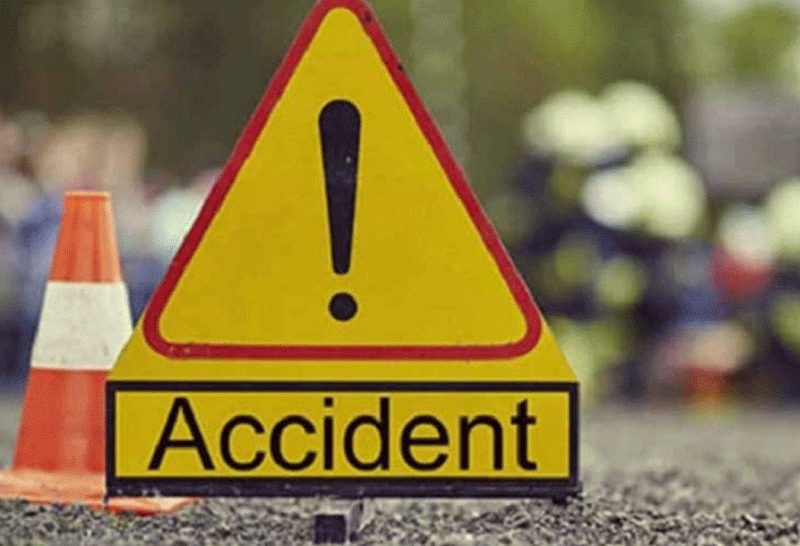
A SHONA proverb says: “Nhasi chineni, mangwana chinewe,” meaning that “today it’s me in trouble, but beware the same trouble will visit you tomorrow”.
I take it as a warning to learn from the disaster of another so as to avoid or mitigate the effects of the same disaster. Disclaimer: I am not an expert on the subject matter you are about to read. I am just a concerned citizen.
Recently, there was a deadly accident in South Africa involving gas explosion. In December 2022 on Christmas eve, a tanker carrying 60 000 litres of liquefied petroleum gas (LPG) exploded underneath a railway bridge in Boksburg, in the Ekurhuleni Metropolitan Municipality in Gauteng province, South Africa. The driver of the said vehicle used an unauthorised route and overestimated the height of a railway bridge underpass he was driving through. His four-metre-high truck got stuck under the 3,6m high bridge underpass. Somehow, the truck’s load of LPG caught fire and then exploded initially killing 41 people.
Most victims were curious onlookers, and staff at the nearby Tambo Memorial Hospital. Several other people suffered severe burns and related traumas. Apparently, four Zimbabweans reportedly died in that blast.
So, recalling the Shona proverb: “Nhasi chineni, mangwana chinewe,” contextually meaning that, what happened in Boksburg, I wish to argue that the same can probably happen, say in Harare. I am not saying this as an alarmist, but as a concerned citizen. I raise this issue as I have seen that I am always driving close to these huge tankers carrying anything up to 60 000 litres of fuel or liquefied gas.
Each time I am near one of these I pray for safety. While I believe that the drivers of these trucks are highly-trained, I am wary of the other “froward” Harare drivers.
The word “froward” is old English meaning habitually disposed to disobedience and opposition, rebellious, adverse, as per Merriam Webster Dictionary. It takes just one “froward” driver to cause an accident with a fuel tank. If fuel was to spill or gas to leak and if there is the slightest of a spark, there would be a massive explosion.
According to arrivealive.co.za, this type of explosion is called a boiling liquid expanding vapour explosion, which results in fatal burns, blast trauma such as fractures and dislocations, asphyxiation caused by toxic gases, projectile injuries from flying debris, cardiac arrest due to the shock of the blast, and dismemberment that is, body parts torn off the body. This may be a bit graphic and gory, but it is necessary to show the high impact of an LPG or fuel tanker explosion.
- Multisectoral COVID-19 messaging campaign improving prevention and vaccine uptake in Zimbabwe
- Multisectoral COVID-19 messaging campaign improving prevention and vaccine uptake in Zimbabwe
- Creating space for agric graduates post land reform
- Mind your (interview) attitude, manners
Keep Reading
One day I decided to count the number of fuel and LPG trucks I encountered during a short trip from Harare central business district to Msasa industrial area, a distance of probably less than 10km. I was shocked. I encountered as many as seven of these massive vehicles. This was mid-morning when traffic is quite heavy. Any explosion of one of those can cause untold deaths and massive damage to property.
While this has not yet happened in Harare, it is a case of probabilities. In risk management, this is a case of low probability, but high impact.
Apparently the fireball created when a fuel tanker with about 42 000 litres of LPG explodes is about 77 metres. The loss of life and damage to property depends on the surroundings. The recommended safe distance for evacuation in such an event is 1,5 to 2km.
How then can we manage such a risk? Firstly, there seems to be a proliferation of service stations even in residential areas. So, this needs to be looked at by the city officials who are giving the permits. Environmental Management Agency and Zimbabwe Energy Regulatory Authority ought to be in on this.
As service stations proliferate all over the place, this results in the need to transport the fuel to the service stations using the massive tankers. Now, the danger of transportation during the day is that the probability of accidents is high due to the froward behaviour of the unruly and mischievous drivers on the streets of Harare. I have often seen these drivers talking or texting on the cellphone while driving.
I must confess that I am not 100% clean of this froward tendency. But, at least I am conscious of it and try all means to refrain from such bad habits.
My second risk mitigation proposal is to limit the transportation of fuel and LPG by the massive trucks to midnight or thereabouts. At this time there is little traffic and the trucks can move at least with little danger of meeting up with froward and rebellious drivers who are disposed to disobedience and opposition.
I am using the word froward to describe the antagonistic and aggressive behaviour of drivers I encounter when driving along the streets of Harare.
One incident was reported of a welder who died when the fuel tanker he was welding exploded. No health, safety and environment procedures were observed here. Please do not weld a fuel tank unless it is empty, cleaned and ventilated to make sure there is no residual gas vapours.
Those are my two cents worth of suggestions to mitigate the risk of a high impact occurrence like a fuel or gas explosion.
Chaza is a certified project management professional with Project Management Institute. He is a member of the Zimbabwe Institution of Engineers. He writes here in his personal capacity.










